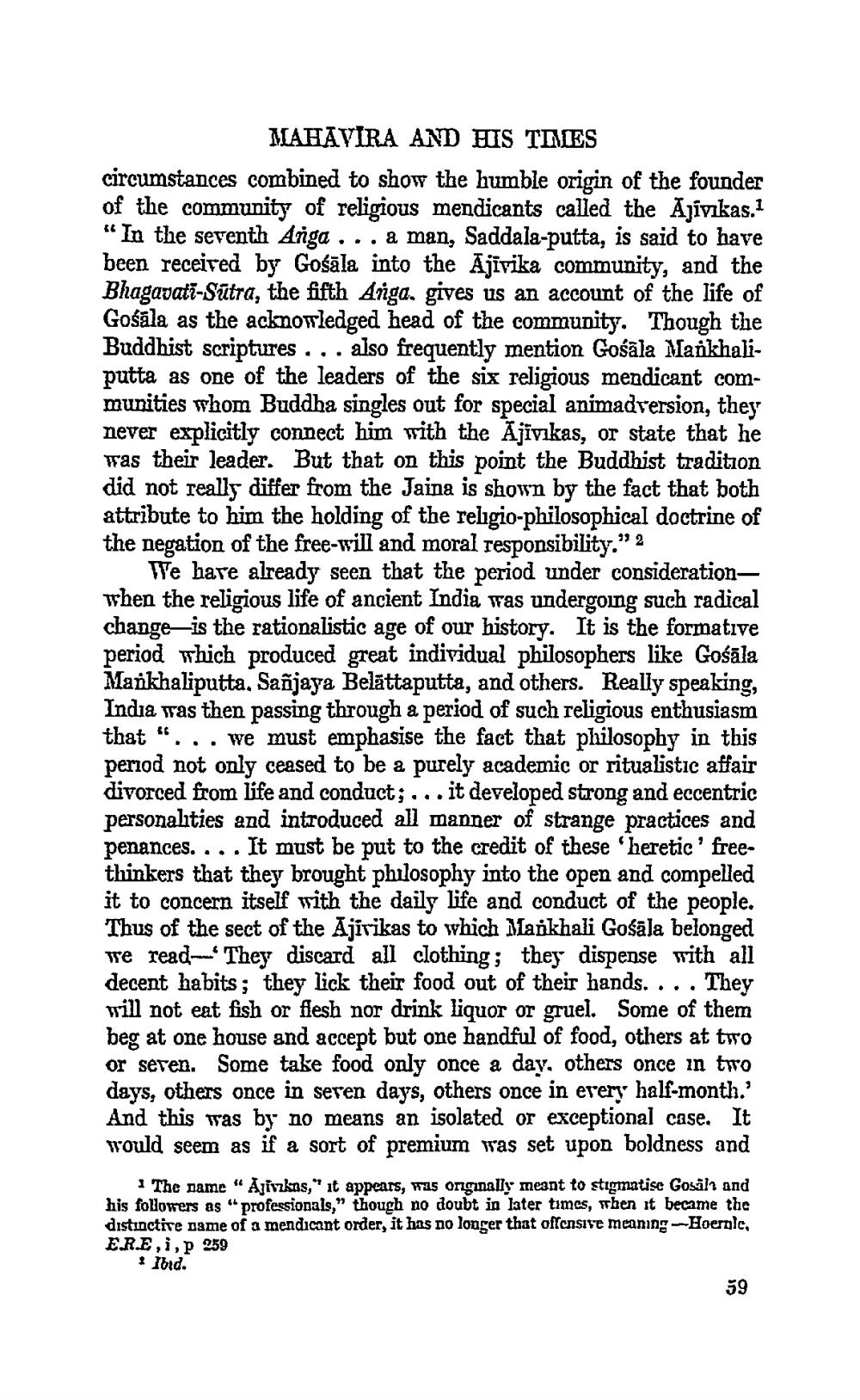________________ MAHAVIRA AND HIS TIMES circumstances combined to show the humble origin of the founder of the community of religious mendicants called the Ajivikas.1 "In the seventh Arga ... a man, Saddala-putta, is said to have been received by Gosala into the Ajivika community, and the Bhagavati-Sutra, the fifth Anga. gives us an account of the life of Gosala as the acknowledged head of the community. Though the Buddhist scriptures ... also frequently mention Gosala Mankhaliputta as one of the leaders of the six religious mendicant communities whom Buddha singles out for special animadversion, they never explicitly connect him with the Ajivikas, or state that he was their leader. But that on this point the Buddhist tradition did not really differ from the Jaina is shown by the fact that both attribute to him the holding of the religio-philosophical doctrine of the negation of the free-will and moral responsibility." 2 We have already seen that the period under considerationwhen the religious life of ancient India was undergoing such radical change is the rationalistic age of our history. It is the formative period which produced great individual philosophers like Gosala Mankhaliputta. Sanjaya Belattaputta, and others. Really speaking, India was then passing through a period of such religious enthusiasm that "... we must emphasise the fact that philosophy in this period not only ceased to be a purely academic or ritualistic affair divorced from life and conduct; ... it developed strong and eccentric personalities and introduced all manner of strange practices and penances. . . . It must be put to the credit of these 'heretic'freethinkers that they brought philosophy into the open and compelled it to concern itself with the daily life and conduct of the people. Thus of the sect of the Ajirikas to which Mankhali Gosala belonged Te read- They discard all clothing; they dispense with all decent habits; they lick their food out of their hands. ... They will not eat fish or flesh nor drink liquor or gruel. Some of them beg at one house and accept but one handful of food, others at two or seren. Some take food only once a day, others once in tiro days, others once in seven days, others once in every half-month.' And this was by no means an isolated or exceptional case. It would seem as if a sort of premium was set upon boldness and 1 The name "Ajinkas," it appears, was orginally meant to stigmatise Gosal and his followers as professionals," though no doubt in later times, when it became the distinctive name of a mendicant order, it has no longer that offensive meaning --Hoerple, E.R.E,,p 259 # Ibid. 59




